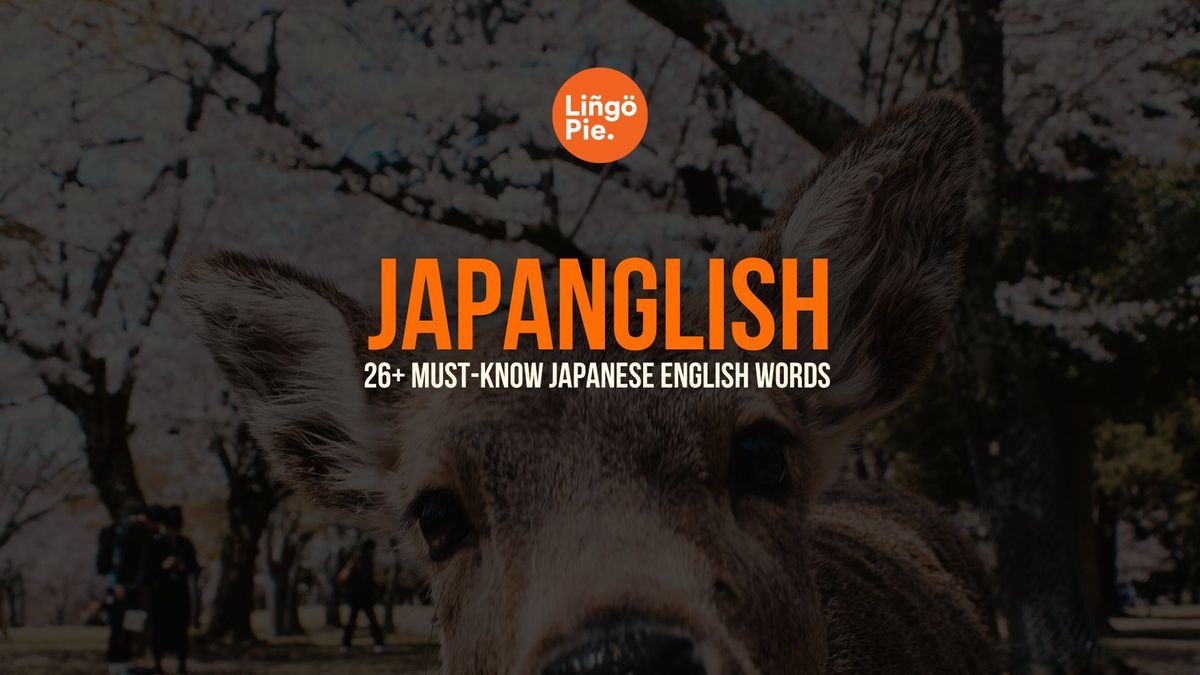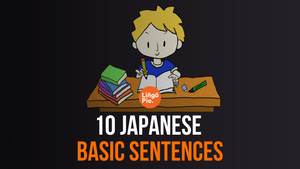Ever noticed how some Japanese words and phrases capture feelings that English just... can't? You know that specific exhaustion after a long day of Zoom calls, or the way sunlight filters through leaves? Japanese has words for those exact moments, and once you learn them, you'll wonder how you ever lived without them.
In this post, I'll share with you some of the best untranslatable Japanese words and expressions you need to know. Who knows...this might just spark your curiosity to learn Japanese through and through!
- 50+ Common Japanese Phrases For Tourists
- 12+ Japanese Curse Words And Swear Words [Guide]
- How to use ChatGPT to Study Japanese (with Prompts)

Why Japanese Has Words English Doesn't
Japanese and English evolved in completely different contexts. While English spread across continents, borrowing and blending, Japanese developed in an island nation with distinct seasons, social structures, and aesthetic values. This isolation created a language that notices things other languages might miss.
In language studies, linguists call this "lexical gaps." These gaps reveal that when one language has a word for something, another language doesn't. Research shows that languages develop specialized vocabulary based on what their speakers need to communicate about most.
For instance, the Inuit famously have multiple words for snow conditions, while Arabic has dozens of words for camels and their behaviors. Japanese? It developed an incredibly rich vocabulary for emotional states, aesthetic experiences, and social relationships.
15 Untranslatable Japanese Words
Here are 15 untranslatable Japanese words that are my favorites:
1. Tsundoku (積ん読)
The habit of acquiring books but letting them pile up without reading them. This word reflects a cultural love for books and the tendency to collect them, perhaps as a symbol of knowledge or intellectual pursuit. However, the lack of time or motivation to actually read them all points to the tension between aspiration and reality in modern society.
2. Wabi-sabi (侘寂)
Finding beauty in imperfection, impermanence, and the natural cycle of growth and decay. Wabi-sabi represents a deeply ingrained aesthetic philosophy in Japan, emphasizing the beauty of imperfection, impermanence, and the acceptance of the natural cycle of life. It encourages a shift in perspective towards finding beauty in simplicity, asymmetry, and the patina of age.

3. Komorebi (木漏れ日)
The sunlight filters through trees, creating a dappled effect on the ground. This word captures a specific moment in nature, highlighting the Japanese reverence for the natural world and the tranquility it brings. It reflects an appreciation for the interplay of light and foliage, evoking a sense of peace and serenity.
4. Mono no aware (物の哀れ)
A sensitivity to the transient nature of beauty and a wistful appreciation of its impermanence. This concept conveys a poignant awareness of the ephemeral nature of life and beauty, emphasizing the bittersweet beauty found in transient experiences. It reflects a deep sensitivity to the passage of time and the inevitability of change.
5. Kuidaore (食い倒れ)
To indulge oneself in food to the point of bankruptcy or ruin. This word reflects a cultural attitude towards indulgence and enjoyment of food, even to excess. It speaks to the Japanese appreciation for culinary pleasures and the social aspect of dining, but also highlights the potential consequences of overindulgence.
6. Yūgen (幽玄)
A profound, mysterious sense of the beauty of the universe that evokes deep emotional responses. Yūgen refers to an ineffable sense of mystery and depth, evoking a profound emotional response that transcends rational understanding. It speaks to the Japanese appreciation for the sublime and the spiritual dimensions of existence.
7. Iki (いき)
A sense of chic, sophistication, and elegance in behavior, aesthetics, and lifestyle. This concept embodies a sense of sophistication, refinement, and understated elegance in Japanese culture. It reflects a nuanced aesthetic sensibility that values simplicity, subtlety, and restraint in both personal style and behavior.
8. Bakku-shan (バックシャン)
A woman who appears attractive from behind but not from the front. This playful term reflects a humorous observation of physical attractiveness, highlighting the subjective nature of beauty and the contrast between appearances from different angles. It speaks to the Japanese penchant for wit and irony in language and social interaction.
9. Omotenashi (おもてなし)
Omotenashi embodies the spirit of selfless hospitality and attentive service, emphasizing the importance of anticipating and fulfilling the needs of others. It reflects the Japanese commitment to graciousness and generosity in interpersonal relationships.
10. Gaman (我慢):
Gaman represents the virtue of endurance, patience, and perseverance in the face of adversity or hardship. It reflects the Japanese emphasis on stoicism, self-discipline, and resilience in overcoming challenges and maintaining harmony in society.

11. Shinrin-yoku (森林浴)
Literally "forest bathing," refers to immersing oneself in nature to promote well-being and relaxation. Shinrin-yoku speaks to the Japanese practice of forest bathing, which is rooted in the belief that immersing oneself in nature has therapeutic effects on both physical and mental well-being. It reflects a profound connection to the natural world and a recognition of its healing powers.
12. Mono-zukuri (ものづくり)
Mono-zukuri refers to the art of craftsmanship and manufacturing, emphasizing meticulous attention to detail, quality, and innovation. It embodies the Japanese dedication to excellence and continuous improvement in the creation of goods and products.
13. Natsukashii (懐かしい)
Natsukashii describes a nostalgic longing for the past, evoking fond memories and sentimental feelings associated with cherished experiences, places, or people. It reflects the Japanese appreciation for tradition, heritage, and the passage of time.
14. Shoganai (しょうがない)
Shoganai conveys an acceptance of circumstances beyond one's control, urging a pragmatic and resigned attitude toward life's inevitable challenges and uncertainties. It embodies the Japanese values of patience, adaptability, and emotional resilience in the face of adversity.
15. Ikigai (生きがい)
Ikigai represents the concept of finding one's purpose or reason for being, encompassing the intersection of what one loves, what one is good at, what the world needs, and what one can be paid for. It reflects the Japanese emphasis on leading a fulfilling and meaningful life by pursuing passions and contributing to society. Ikigai inspires individuals to align their actions with their inner values and aspirations, fostering a sense of fulfillment, satisfaction, and overall well-being.
16. Yoroshiku (よろしく)
Yoroshiku is a versatile greeting word with many meanings, encompassing meanings such as "please," "thank you," "nice to meet you," "I look forward to working with you," and "please treat me well." It reflects the Japanese values of politeness, respect, and harmonious interpersonal relationships.
17. Mottainai (もったいない)
Mottainai conveys a sense of regret or shame for wasting resources or letting something go to waste. It reflects the Japanese value of frugality, conservation, and the mindful use of resources to minimize waste and promote sustainability.
18. Otsukaresama (お疲れ様)
Otsukaresama is used to express appreciation or acknowledgment for someone's hard work or effort. It conveys gratitude and recognition for the contributions of others, fostering a sense of camaraderie and mutual support in Japanese society.

How to Use Untranslatable Japanese Words?
Using untranslatable Japanese words in daily life can enrich our understanding of different cultures. Here are some tips on how to use them effectively in context:
- Understand the Meaning: Take the time to understand the nuanced meanings and cultural contexts of untranslatable words before using them in conversation.
- Provide Explanation: When introducing untranslatable words to others, provide a brief explanation of their meaning and significance to ensure clarity and understanding.
- Use in Relevant Contexts: Use untranslatable words when they are relevant to the conversation or situation, as this will make them more meaningful and impactful.
- Be Mindful of Appropriateness: Be mindful of the appropriateness of using untranslatable words in different contexts and with different audiences to avoid confusion or misunderstanding.
- Encourage Exploration: Encourage others to explore and use untranslatable words in their own communication to promote cultural exchange and appreciation.
- Incorporate into Writing: Incorporate untranslatable words into writing, such as essays, stories, or poetry, to add depth and richness to the narrative.
- Practice Pronunciation: Practice pronouncing untranslatable words correctly to ensure effective communication and respect for the language from which they originate.
By following these tips, you can easily use untranslatable Japanese words in your daily life, fostering greater cultural understanding and appreciation in your interactions with others.
Why These Words Will Level Up Your Japanese
Learning these untranslatable words instantly makes your Japanese more natural because:
You'll sound like a native, not a textbook.
Japanese people actually use these words daily. When you say "otsukaresama" instead of explaining someone worked hard, you're speaking real Japanese.
You'll think in Japanese, not translate from English.
These words express concepts that don't exist in English. Using them rewires your brain to think like a Japanese speaker.
You'll connect better with Japanese people.
When you use "natsukashii" or "shoganai" correctly, it shows deep cultural understanding. Native speakers will treat you differently—better.
You'll speak more efficiently.
Why struggle to explain a feeling when one word captures it perfectly? These words are shortcuts to fluency.
Want To Learn Japanese Through TV Shows?
Ready to learn Japanese in a fun and relaxed way? Lingopie's got you covered! Dive into a world of Japanese TV shows, movies, and anime, handpicked to help you learn the language naturally.
With Lingopie's easy-to-use platform, you can enjoy your favorite entertainment while picking up new words and phrases. Whether you're into dramas like "Terrace House," classic films like "Spirited Away," or popular anime series like "My Hero Academia," Lingopie has something for everyone. Start learning Japanese today with Lingopie and have fun while doing it!
Download Lingopie from the App Store or Play Store now and get a FREE 7-day trial!
Frequently Asked Questions
What is the untranslatable Japanese phrase that predicts love?
Koi no yokan (恋の予感) means “premonition of love.” It’s the feeling that you’ll inevitably fall in love with someone, not instant attraction but a deep sense of future connection.
Is Koi no Yokan real?
Yes, koi no yokan is a real Japanese phrase describing the intuitive sense that love will develop. Unlike “love at first sight,” it's a quiet certainty rather than a sudden spark.
What does Ikigai mean?
Ikigai (生き甲斐) means “reason for being.” It’s the purpose or passion that gives life meaning—whether it’s work, hobbies, or relationships.
What does Kaizen mean?
Kaizen (改善) means “continuous improvement.” It’s the practice of making small, consistent changes for long-term growth, both in business and personal life.
What is the meaning of Wabi Sabi?
Wabi-sabi (侘寂) is the Japanese concept of beauty in imperfection and impermanence. It values simplicity, aging, and the natural flaws that make things unique






![How To Use Mo (も) Particle In Japanese Grammar [Guide]](/blog/content/images/size/w300/2025/06/How-To-Use-Mo-----Particle-In-Japanese-Grammar.jpg)


